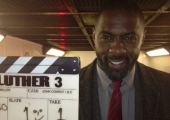The Apprentice Series 7: The Final, BBC One

This year's series lacked memorable characters, but at least the nice guy won it
Just as we thought we were getting tired of the format, the BBC rang in the changes. It was no longer an apprentice Lord Sugar was after, but a partner in a business that he would invest a quarter of a million in. The candidates – 16 freshly laundered suits kicked us off – did the usual strutting and rustling of peacock feathers (a large part of the programme’s success is surely due to these cringeworthy failures of self-insight). But still, this year things seemed a little subdued on the bravado/bullshit front – though Northern Ireland Jim, a cliché machine, yes, but an impressively persuasive one, gave it his best shot.









